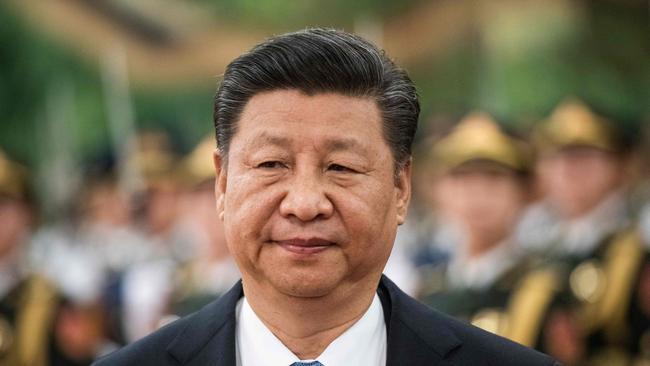Xi to talk up reform as economy slows
Xi Jinping is expected to outline his vision for China’s economic future today as he marks the nation’s 40 years of opening up.

China’s President Xi Jinping is expected to outline his vision for China’s economic future today as he celebrates the country’s 40 years of opening up and reform.
But his speech, to be held in the Great Hall of the People this morning, to mark moves by Deng Xiaoping at the Communist Party’s Third Plenum in December 1978 opening China to the rest of the world, comes at a time when China’s economy is slowing.
China Daily yesterday prepared its readers to lower their expectations with a story headed “China needs to lower next year’s GDP targets”, while news that the government was scrapping the production of purchasing managers’ indexes from the manufacturing hub of Guangdong has led to speculation that Beijing is tightening its grip on economic news ahead of a tough 2019.
News emerged in China and Hong Kong yesterday that Beijing had ordered authorities in Guangdong province to stop producing a regional purchasing managers’ index for the manufacturing sector, with the National Bureau of Statistics now producing all the data.
The index produced in Guangdong, the province hardest hit by the US trade wars, was seen as an important economic indicator. The move has prompted speculation that the government is moving to tighten its control on the release of data as the economy slows.
Weaker world growth, a tightening up of the shadow banking sector, increasing regulatory controls and a bitter trade war with the US are already taking their toll on the Chinese economy, which grew by an estimated 6.6 per cent this year.
Latest figures show a sharp slowdown in consumer spending with retail sales growing at their weakest pace since 2003, while the country’s manufacturing output is the weakest in three years, despite stimulatory measures by the government.
In a new report, ANZ economists are predicting China will slow to 6.3 per cent next year. US ratings agency Moody’s is expecting growth of around 6 per cent, citing a slower world economy and the trade war accelerating the slowdown.
The China Daily reported that economists were predicting Beijing would set a growth target of between 6 and 6.5 per cent for next year. It quoted a report from Su Jian, an economist with Peking University, that China’s natural rate of economic growth next year would be 5.5 per cent but that it would come in around 6.2 per cent “after macroeconomic control” (stimulatory measures).
While Xi is expected to talk today about plans for opening up and reform, his comments will be scrutinised for any new shifts in policies or any measures to stimulate the slowing economy.
His speech comes at a time when China is under pressure to make more trade concessions to appease US President Donald Trump. Some domestic critics argue that the pace of reform has slowed in the past few years, with little done to reform the banking system or state-owned enterprises. Under Xi’s presidency the role of SOEs has increased, although this may be partly due to the fact that the private sector is bearing the brunt of the economic slowdown.
Xi’s moves to increase the Communist Party’s controls over private enterprise and to stifle any internal criticism of government policy could also be issues constraining private sector growth and entrepreneurship.
“The country’s deleveraging and de-risking campaigns are showing some progress, although deleveraging will slow and general government debt will increase as growth weakens,” Moody’s vice president, Martin Petch, said.
ANZ economist Raymond Yeung says the bank is “cautious” about the prospects for China’s trade negotiations with the US which are expected to get under way in earnest in the new year.
Yeung says the direct impact of the US moving ahead with 25 per cent tariffs — which could happen in March next year if both sides don’t reach agreement — would only shave 0.5 per cent off China’s growth. But the report acknowledges that the impact of Trump’s attacks on China have added to market volatility. “Trump’s tweets will still drive sentiment and market volatility,” ANZ says.
The report describes the outlook for growth in China as “sluggish” but suggests that the government could look to further stimulate growth by announcing a tax cut for next year. It predicts that next year will see a downturn in export orders, as the US economy slows and the impact of higher tariffs imposed by the trade war to date flow through. There are reports that China’s export figures this year have been artificially stimulated by a rush to send goods to the US ahead of rising tariffs which were expected to come into force on January 1.
China recorded its first quarterly current account deficit ($US34 billion) in the first quarter of this year since 2001.
The June and September quarters showed a small positive.



